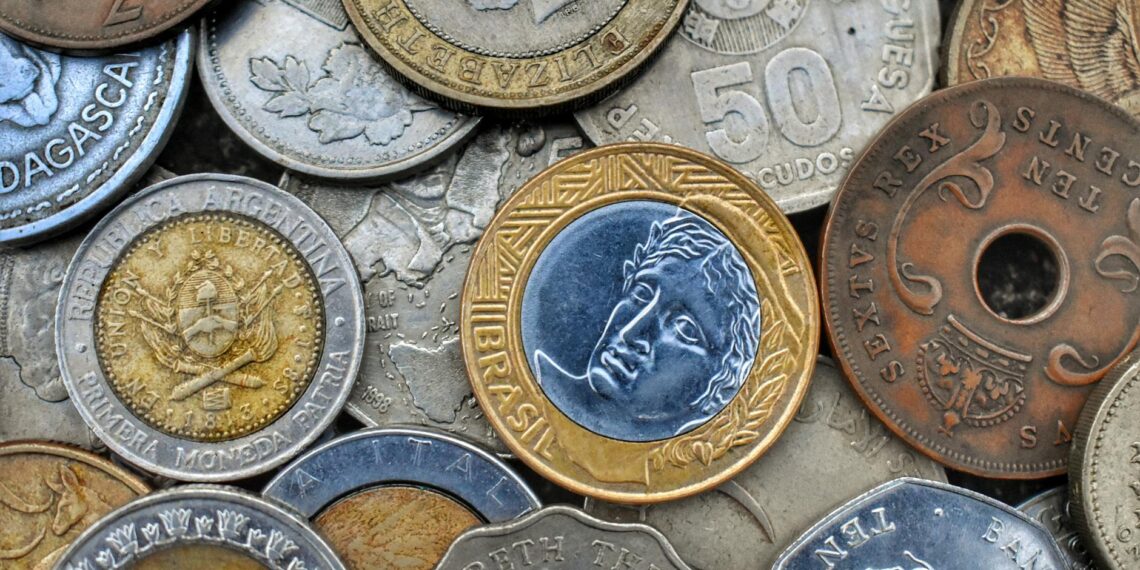Here’s how to handle an inherited coin collection:
- Identify items to keep: Determine if any coins or medals have sentimental value. Removing a few items usually won’t affect the overall value, but avoid separating complete sets.
- Handle coins with care: Minimize direct contact, as oils and chemicals from hands can damage and devalue them. Handle coins by the edges, ideally over a soft surface.
- Do not clean coins: Cleaning coins can reduce their value, even if they appear dirty. Leave them in their existing holders or storage until an expert examines them.
- Maintain existing organization: If the collection is organized in albums or other containers, keep the coins as they are. [Bellevue Rare Coins advises] against removing coins from graded slabs or binders, as this can affect their grade and sale price.
- Organize loose coins: Sort loose coins by denomination and then by date within each denomination.
- Purchase basic supplies: Consider acquiring a good magnifier, soft cotton gloves, a plastic ruler (to avoid scratching coins), and a reference book like the Red Book (for US coins) or Krause catalogs (for world coins).
- Consult pricing guides: Use resources like the PCGS Price Guide or the Red Book to estimate your coins’ worth. However, these are estimates, and dealers typically offer less than listed values.
- Consider a professional appraisal: For an accurate valuation, especially for valuable coins or tax purposes, get a professional appraisal from a reputable coin dealer, auction house, or a numismatic organization such as the [American Numismatic Association] . Online appraisal services from reputable companies are also available.
- Educate yourself on coin collecting basics: Learning about grading, values, and market trends can help you make informed decisions.
- Understand different valuation methods: Coin values can be determined by face value (denomination), market value (what someone will pay), intrinsic value (metal content), and book value (listed in catalogs).
- Be aware of factors influencing value: Rarity, historical significance, condition, and demand are key elements affecting a coin’s worth.
- Keep it: If the collection has sentimental value or there is interest in the hobby, it can be kept and potentially expanded.
- Sell it: If you’re not interested in collecting, selling the collection can realize its monetary value.
- Re-gift it: Consider passing the collection on to another family member or a coin enthusiast.
- Get multiple offers: If possible, obtain evaluations and offers from several reputable coin dealers or auction houses to compare prices.
- Choose your selling method wisely:
– Coin dealers offer a direct and potentially quicker transaction.
– Auction houses may be suitable for larger or higher-value collections, attracting more buyers but involving potential delays and fees.
– Selling online platforms like eBay can expand your reach but demand time and effort for managing listings and transactions, potentially incurring fees.
- Identify reputable buyers: Look for dealers and auction houses affiliated with professional organizations like the [American Numismatic Association] or Professional Numismatists Guild.
- Store coins properly: Keep coins in a controlled environment, away from humidity and extreme temperature changes.
- Use appropriate holders: Avoid plastic holders containing PVC, which can damage coins over time. Opt for archival-quality materials like mylar flips or hard plastic capsules.
- Ensure adequate security: Consider storing high-value coins in a safe deposit box or ensuring home insurance covers the collection for its full replacement value.
- Regularly inspect the collection: Check for any signs of deterioration or environmental damage to take preventative measures as needed.
By carefully assessing, researching, and making informed decisions about an inherited coin collection, it can be handled properly, and its value is maximized, whether you choose to keep, sell, or pass it on to another enthusiast.









What to do when you inherit a coin collection?
Get a Free Evaluation of Your Inherited Coins
Your local coin shop is a great option, so long as they have a good reputation. Most coin shops will evaluate coins for free, and prepare an offer to buy specific items or even the whole collection. There’s no obligation to sell.
Is an inherited coin collection taxable?
IRS Reporting Requirements & Compliance
Selling inherited coins results in a taxable gain or deductible loss, depending on the difference between the sale price and the FMV at the time of inheritance. The IRS considers inherited assets like coins as long-term holdings, regardless of the actual holding period.
How to cash in a coin collection?
Thanks for asking. If you want to sell the collection as quickly as possible, and at competitive rates, your best option may be to sell your collection to a local coin dealer or coin shop. As mentioned above, you should expect to receive a reasonable offer relative to published prices in the “Blue Sheet” or “Blue Book” for U.S. coins.
What is the best thing to do with a coin collection?
Sell: If you’re looking to cash in on your collection, research the current market value of your coins. You can sell to a local coin dealer, at auctions, or online through platforms like eBay or specialized numismatic websites. Trade: You can also trade coins with other collectors to acquire pieces you desire.